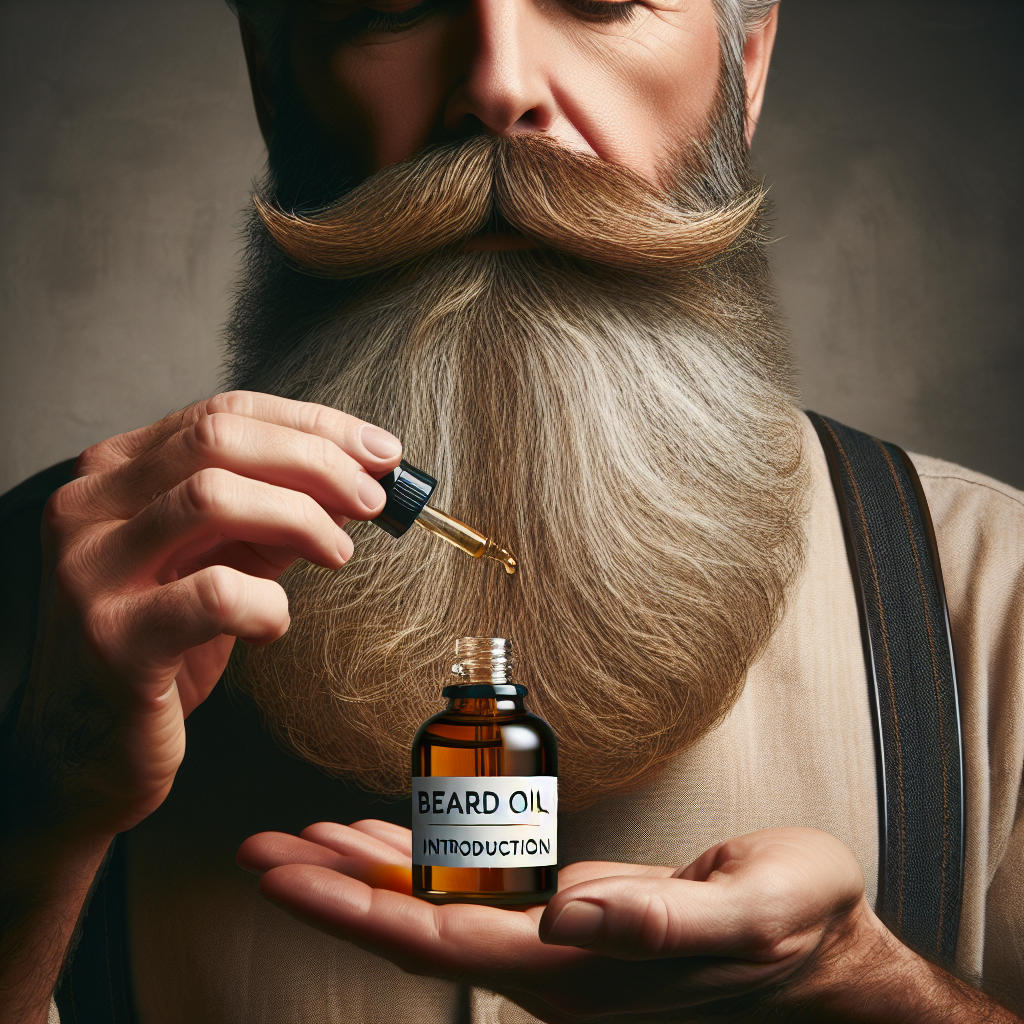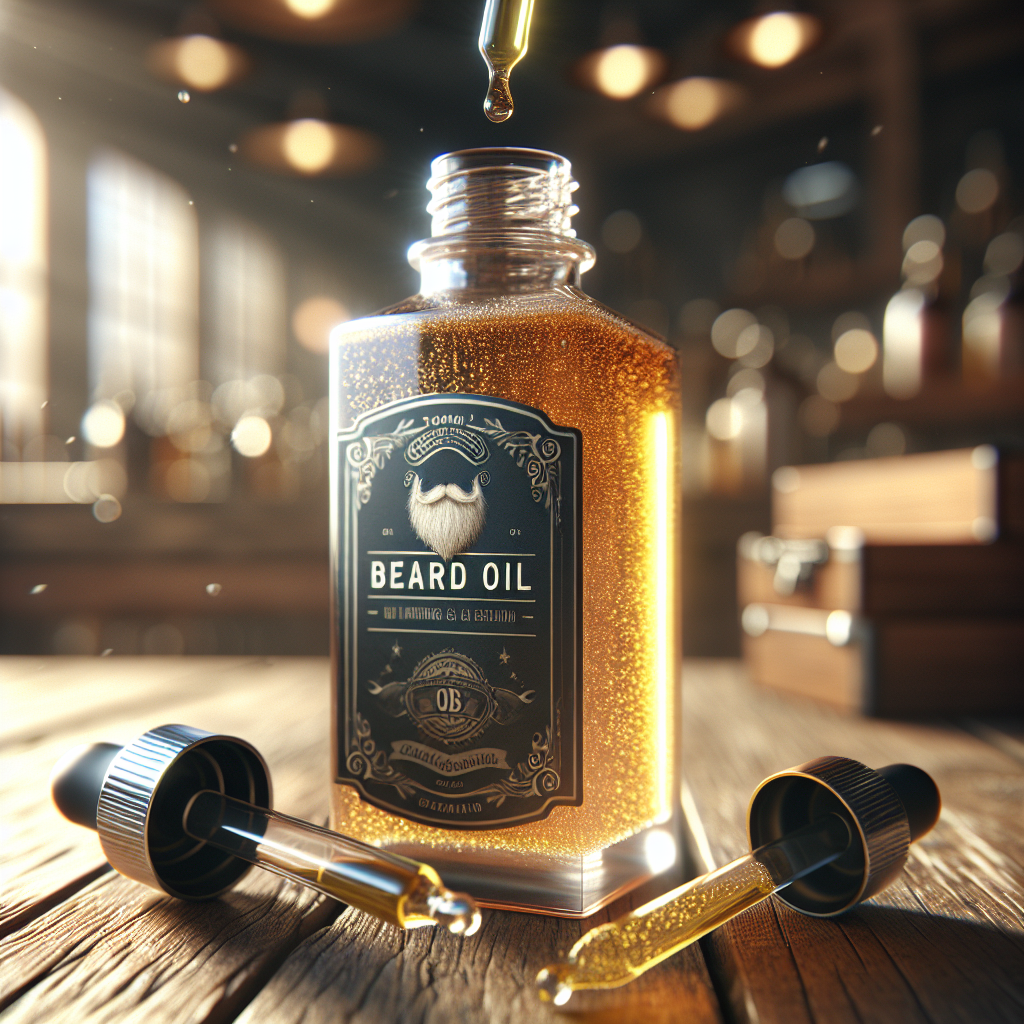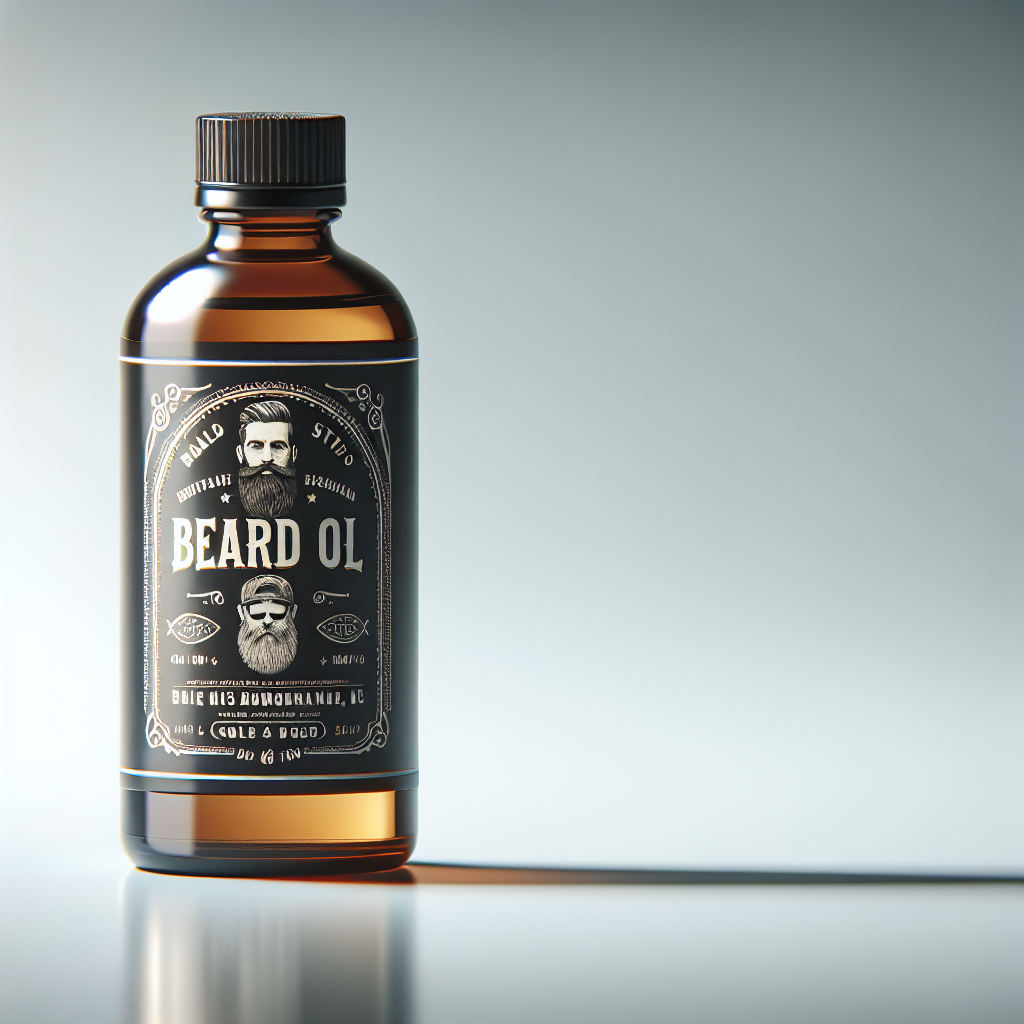
Why Beard Oil is a Must-Have for Your Grooming Routine
Benefits of Using Beard Oil
In the world of facial hair care, beard oil stands out as an indispensable product. Whether you’re a seasoned beard enthusiast or just starting your beard-growing journey, you might wonder why so many swear by this grooming essential. At its core, beard oil is designed to nourish and hydrate both your beard and the skin underneath, ensuring a healthier, more manageable beard.
Made from a blend of carrier oils such as jojoba, argan, and coconut oil, along with essential oils for fragrance and added benefits, beard oil offers a multitude of advantages. It helps in reducing itchiness, preventing beard dandruff, and promoting a softer, shinier beard. Additionally, the natural components in beard oil can help in taming unruly hairs, making styling easier and more effective.
Integrating beard oil into your daily grooming routine can significantly transform your beard’s appearance and feel. Not only does it provide the necessary hydration to prevent dryness and flakiness, but it also infuses your beard with a pleasant, lasting fragrance. For those who are struggling with slow or patchy beard growth, some beard oils are formulated specifically to stimulate hair follicles and encourage fuller growth.
Ready to embark on your natural beard care journey? Learn more about your natural beard care journey here and discover how our premium, all-natural beard care products can elevate your grooming routine to the next level.
Benefits of Using Beard Oil

Benefits of Using Beard Oil
Using beard oil is more than just a grooming trend; it offers a plethora of benefits that can significantly enhance the health and appearance of your beard. Here are some key advantages:
- Hydration and Moisturization: Beard oil is formulated with natural carrier oils like jojoba and argan oil, which mimic the natural oils produced by your skin. These ingredients help keep your beard and the skin underneath well-hydrated and moisturized, preventing dryness and flakiness.
- Itch and Dandruff Relief: One of the most common complaints among beard growers is itchiness and beard dandruff. The moisturizing properties of beard oil help alleviate these issues, making your beard-growing journey more comfortable.
- Softening and Conditioning: Regular use of beard oil can transform a coarse, rough beard into soft, touchable facial hair. This makes styling much easier and more effective, giving you a well-groomed appearance.
- Enhanced Beard Growth: Some beard oils contain ingredients like castor oil, which are known to stimulate hair follicles and promote fuller, healthier beard growth. This is particularly beneficial for those struggling with patchy or slow-growing beards.
- Improved Appearance: Beard oil adds a natural shine to your beard, making it look healthier and more vibrant. The added fragrance from essential oils also ensures your beard smells great throughout the day.
- Protective Barrier: The oil creates a protective layer around each hair strand, shielding it from environmental stressors like pollution and harsh weather conditions.
Incorporating beard oil into your grooming routine is a simple yet effective way to reap these benefits, ensuring your beard not only looks great but feels great too.
How to Properly Apply Beard Oil
Benefits of Using Beard Oil
Knowing how to properly apply beard oil can make all the difference in achieving a healthy, well-groomed beard. Follow these steps to ensure you’re getting the most out of your beard oil:
- Start with a Clean Beard: Always apply beard oil to a clean beard. Use a gentle beard shampoo to wash away dirt and oils. Rinse thoroughly and pat dry with a towel. Applying oil to a damp beard helps lock in moisture.
- Use the Right Amount: The amount of oil you need depends on the length and thickness of your beard. For a short beard, 2-3 drops are sufficient. For a medium-length beard, try 4-6 drops, and for a long, thick beard, you may need 8-10 drops. Remember, it’s better to start with less and add more if needed.
- Warm the Oil: Pour the required amount of oil into your palm and rub your hands together to warm it up. Warming the oil helps it spread more evenly and penetrate the hair and skin better.
- Apply Evenly: Start by massaging the oil into your skin beneath the beard. This is crucial as it helps nourish the hair follicles and prevents dry skin. Then, work the oil through your beard, from the roots to the tips, ensuring every strand is coated.
- Comb or Brush: Use a beard comb or brush to distribute the oil evenly and detangle your beard. This also helps in styling your beard and giving it a polished look. A boar bristle brush is particularly effective at distributing oil.
- Style as Desired: Finish by styling your beard as usual. You can use beard balm or wax for additional hold and shape if needed.
Proper application of beard oil not only ensures your beard is well-nourished but also maximizes the benefits, leaving you with a soft, manageable, and healthy-looking beard.
Choosing the Right Beard Oil

Choosing the right beard oil is crucial for ensuring that your beard receives the care it needs. With so many options available, it can be overwhelming to pick the perfect one. Here are some key factors to consider when selecting a beard oil:
- Ingredients: Look for beard oils made from all-natural ingredients. High-quality oils like jojoba, argan, and sweet almond are excellent for moisturizing and nourishing your beard and the skin beneath. Avoid products with synthetic fragrances or harsh chemicals, as they can cause irritation and dryness.
- Skin Type: Consider your skin type when choosing a beard oil. If you have sensitive skin, opt for a fragrance-free or hypoallergenic oil to minimize the risk of irritation. For oily skin, a lighter oil like grapeseed or jojoba is ideal, as it won’t clog pores. Those with dry skin can benefit from richer oils like argan or coconut.
- Beard Length and Thickness: The length and thickness of your beard will also influence your choice. Thicker and longer beards may require heavier oils for better hydration, while shorter beards can get away with lighter formulations.
- Scent: The scent of the beard oil is a personal preference. Choose a scent that you find pleasant and that complements other grooming products you use. Many beard oils come in a variety of scents, from woodsy and earthy to citrusy and fresh.
- Brand Reputation: Research and choose a reputable brand known for its quality and customer satisfaction. Reading reviews and testimonials can provide insights into the effectiveness and reliability of the product.
By taking these factors into account, you can find a beard oil that perfectly suits your needs and enhances your grooming routine, ensuring your beard remains healthy, soft, and well-maintained.
Common Ingredients in Beard Oils

Understanding the common ingredients in beard oils can help you make an informed choice about which product is best for your grooming needs. Here’s a closer look at some popular ingredients found in high-quality beard oils:
- Jojoba Oil: Often hailed as one of the best oils for beard care, jojoba oil closely resembles the natural oils produced by your skin. It is easily absorbed, non-greasy, and excellent for moisturizing and conditioning both the beard and the skin beneath.
- Argan Oil: Known as “liquid gold,” argan oil is rich in vitamins A and E, antioxidants, and essential fatty acids. It helps to hydrate, soften, and strengthen your beard while reducing dryness and flakiness of the skin underneath.
- Sweet Almond Oil: This lightweight oil is packed with vitamins E and D, making it great for moisturizing and soothing the skin. It also promotes healthy beard growth and adds a natural shine to your facial hair.
- Coconut Oil: Coconut oil is well-regarded for its deep conditioning properties. It helps to combat dandruff, reduce beard itch, and add a healthy sheen to your beard. Its antimicrobial properties also contribute to maintaining a clean and healthy beard.
- Grapeseed Oil: A lighter oil, grapeseed oil is perfect for those with oily skin. It is non-comedogenic, meaning it won’t clog your pores, and it helps to balance the skin’s natural oil production while providing hydration.
- Castor Oil: Known for its ability to promote hair growth, castor oil is often included in beard oils to help thicken and strengthen facial hair. It also helps to lock in moisture, keeping your beard soft and manageable.
These ingredients are not only beneficial for your beard but also for the skin underneath. When choosing a beard oil, look for products that contain a blend of these natural oils to ensure your beard receives the best possible care.
Frequently Asked Questions About Beard Oil

As beard oil becomes an essential part of many grooming routines, it’s natural to have questions about its use and benefits. Here are some frequently asked questions to help you understand beard oil better:
- How often should I use beard oil? It’s generally recommended to apply beard oil daily. However, the frequency can vary based on your beard length and skin type. If you have a shorter beard or oily skin, you might find that every other day is sufficient.
- Can beard oil help with beard growth? While beard oil itself doesn’t directly cause hair growth, ingredients like castor oil and vitamins can nourish the hair follicles and create a healthier environment for growth. Consistent use can lead to a fuller, more robust beard over time.
- How much beard oil should I use? The amount depends on your beard’s length and thickness. Typically, 3-5 drops are enough for a shorter beard, while longer beards may require up to 10 drops. Start with a small amount and add more if necessary.
- Can I use beard oil if I have sensitive skin? Yes, many beard oils are formulated with natural, gentle ingredients suitable for sensitive skin. Look for products free from synthetic fragrances and harsh chemicals to reduce the risk of irritation.
- What’s the best way to apply beard oil? For optimal results, apply beard oil when your beard is slightly damp, usually after a shower. Dispense a few drops into your palm, rub your hands together, and then massage the oil into your beard and skin, ensuring even distribution.
- Can I use beard oil with other beard care products? Absolutely! Beard oil pairs well with other grooming essentials like beard balm and beard wash. Using a combination of products can help you achieve a well-rounded beard care routine.
By addressing these common questions, we hope to enhance your understanding and confidence in using beard oil as part of your grooming routine. Learn more about your natural beard care journey here.

